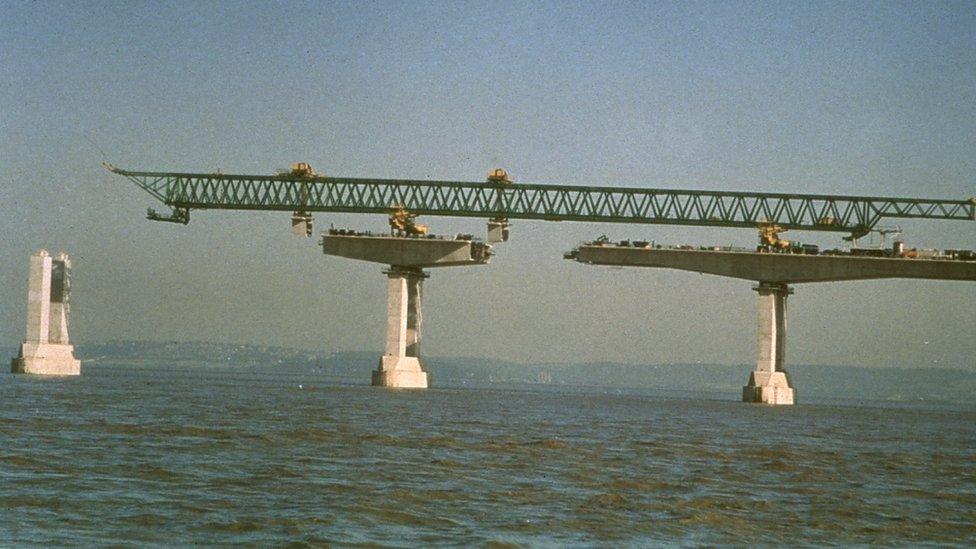Severn crossings: £1.50 each way option on tolls
- Published
Alun Cairns says the planned cut "strikes the right balance"
Introducing an expensive two-way free-flowing tolling system on the Severn crossings would not see fees rise, Welsh Secretary Alun Cairns has said.
Tolls on the bridge will drop to £3 for cars, vans and small buses when the crossings go into public ownership by early 2018, under UK government plans.
Currently only westbound users pay and use toll booths.
A two-way system using number plate recognition could mean motorists paying £1.50 each way.
Mr Cairns said a cut from £6.70 for cars to £3 showed Wales was "open for business".
When asked if the cost of a two-way system would see a rise in the new £3 charge - revealed on Thursday - he told BBC Radio Wales £3 was "absolutely the commitment".
"I want to look at technology for free-flow traffic, free-flow charging and that is expensive in itself," he said, announcing the start of an eight-week consultation.
"We need to get to a compromise which allows us to bring about this new innovation in order to maintain the bridge in the most optimum condition as well as repay the debt.
"This £1.50 each way - or £3 if you're only charging one way - strikes the balance."
The minister added: "I hope we can get to that position of charging both ways."

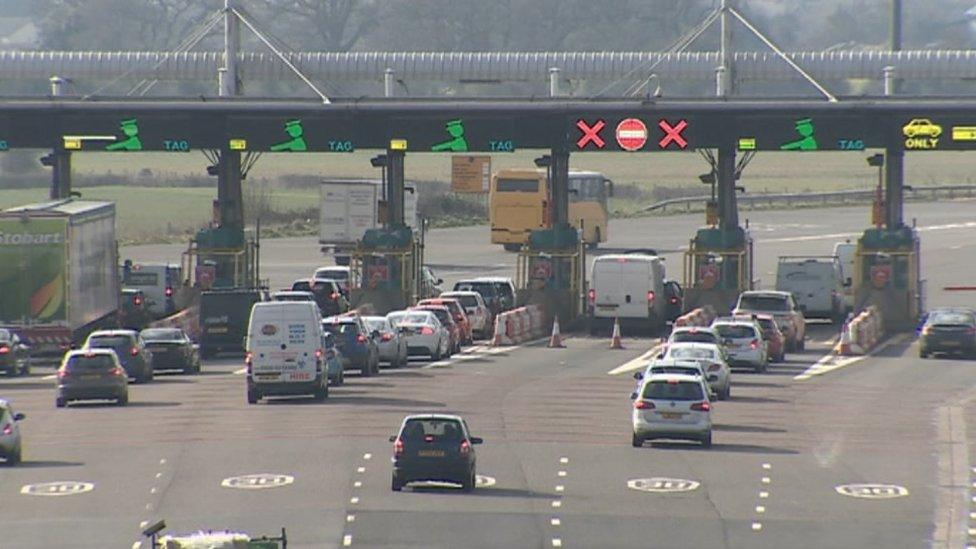
Under the plans:
Car tolls would be reduced from £6.70 to £3
Vans and small buses will also pay only £3, down from £13.40
Lorries and coaches will pay £10 instead of £20
These fees would be halved for a two-way system in which drivers would pay £1.50 each way or £5 for lorries

Mr Cairns rebuffed calls to scrap tolls all together citing a need to maintain the bridge, resurface it and pay off the "tens of millions of pounds" debt which would still exist.
To those calling for the tolls to be abolished, he said they should "welcome" the cuts.
"I think we've got to recognise that as we leave the European Union we are competing with every other part of the world," he added.
"This is an opportunity to give a competitive advantage compared to the current position to businesses in south Wales, the south west of England, in order to bind cities together, in order to bind regions together and to become a much more competitive and productive nation."
Fantastic news for Monmouthshire, says Caldicot Town Team director Aaron Reekes
John Warman, a Neath Port Talbot councillor who leads the Campaign Against Severn Tolls, said the move "doesn't go far enough", suggesting maintenance costs could be covered by general taxation.
But the Federation of Small Business Wales welcomed the cuts.
Policy chairwoman Janet Jones said: "For many years, the significant level of tolls has been an issue of concern to both large and small businesses and placed significant costs on those businesses who use it regularly.
"While the reduction of tolls is very important, adopting free flow technology for their payment to reduce what are currently often significant delays at the toll plaza must also be a priority."
Labour Shadow Welsh Secretary, Jo Stevens, said the announcement "is good news for businesses and commuters in south Wales".
She said: "With little concrete information about how the free flow system will work in practice, however, the devil will be in the detail and I will be pushing ministers to ensure any changes leave people better off."
Ms Stevens added that she hoped the government will "consider seriously the views of those who think the charges need to be dropped entirely".
- Published12 January 2017
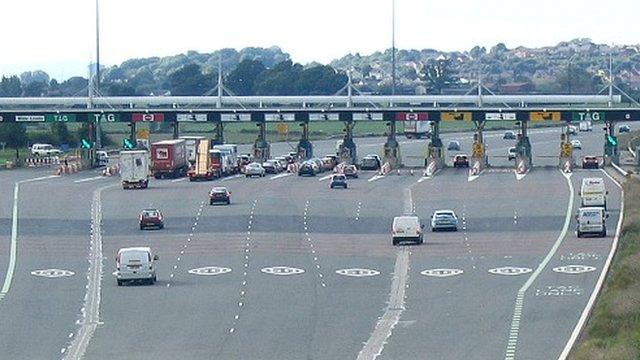
- Published7 November 2016
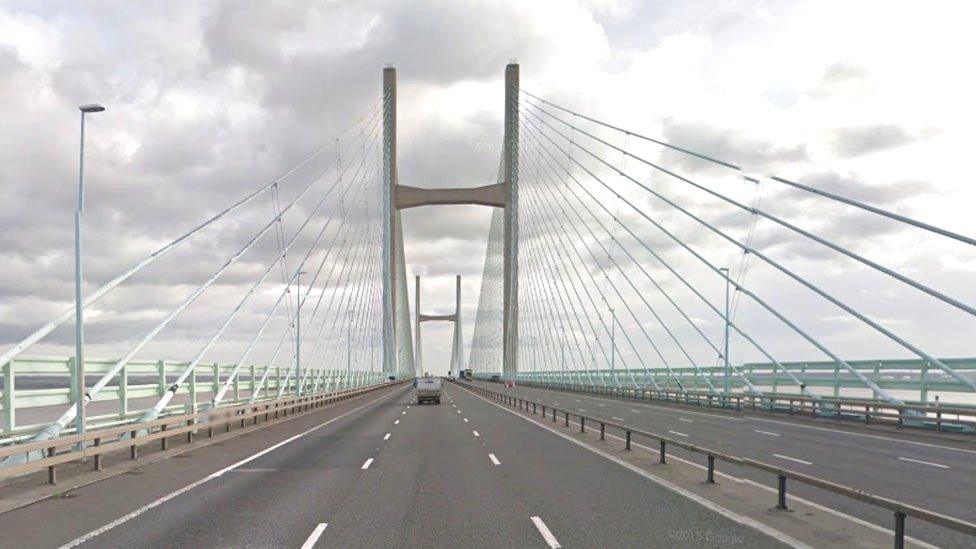
- Published1 January 2017
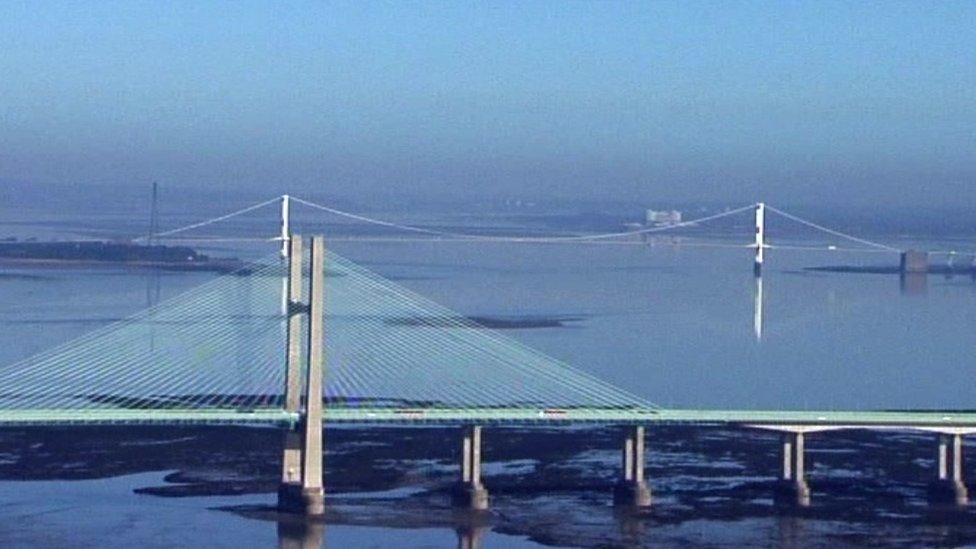
- Published2 December 2016
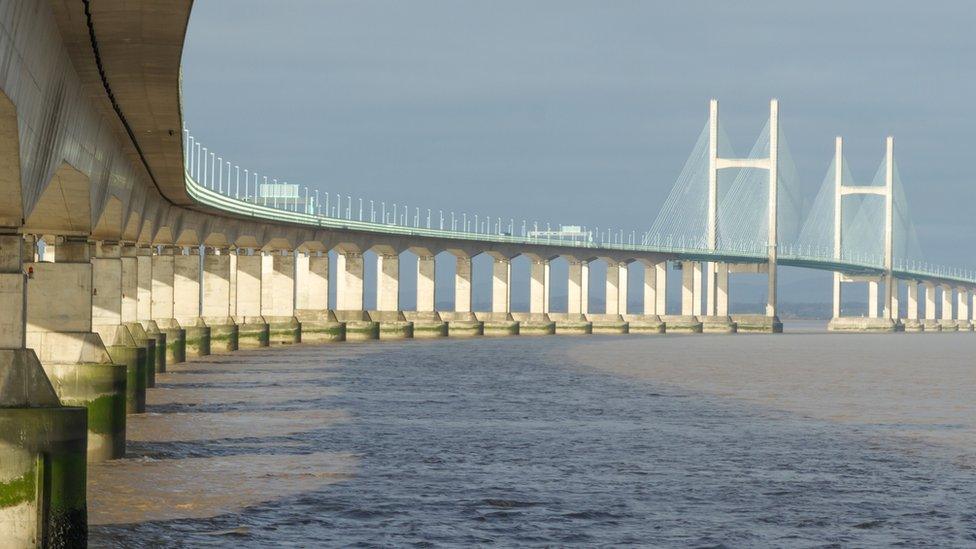
- Published5 June 2016
